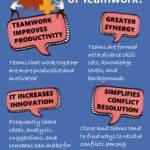
Arresting Mystery Exercise
Arresting Mystery is a lateral thinking exercise to encourage creativity and develop critical thinking skills.
Challenge your group to solve a mystery with limited facts. To help them find a solution, your group can only ask you questions that can be answered with “YES” or “NO.”
The resolution of this mystery is great and very ingenious.
Acting on an anonymous phone call, the police raid a house to arrest a suspected murderer. They don’t know what he looks like but they know his name is John and that he is inside the house. The police bust in on a carpenter, a lorry driver, a mechanic and a fireman all playing poker. Without hesitation or communication of any kind, they immediately arrest the fireman. How do they know they’ve got their man?
Invite your group to start asking questions. You may only respond with “YES” or “NO.” You may respond with “IRRELEVANT” if your answer to a question does not bring the group closer to a solution.
If, after ten or more minutes, your group has not solved the mystery, you may guide your group to ask questions about a certain topic to draw them closer to a solution. As with all lateral-thinking exercises, it is critical that you do not let these mysteries linger for too long, lest people quickly disengage and will likely refuse to play them again.
By the way, the answer to the question is that the fireman is the only man in the room, the rest of the poker players are women.
Moment of Reflection
- What reactions did you observe from the group when the mystery was first announced?
- What feelings did you or the group experience during the activity? Why?
- Did you or the group make any assumptions? Provide an example.
- How easy was it to identify and/or dismantle these assumptions?
- Where else in our lives do we make assumptions that cause us to make poor decisions?
The topics of this publication: teamwork, creativity, motivation, interactions, active listening, imagination, brainstorming, reflection


